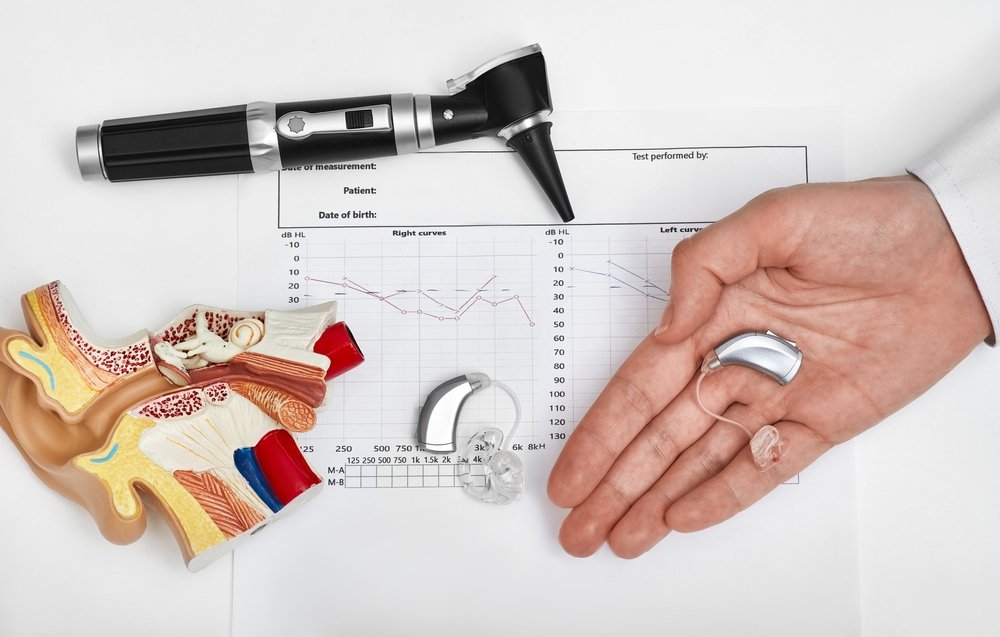
Hearing loss is often associated with aging, leading many to disregard the importance of regular evaluation intervals. However, periodic hearing tests help audiologists detect hearing problems, enabling individuals to maintain optimal hearing health.
Early hearing loss detection is critical, as it creates an opportunity to prevent further hearing loss, access customized treatment plans, and improve the overall quality of life.
So, how often should you get a hearing test? Determining an appropriate hearing screening interval depends on several factors, including age, environmental factors, and hearing loss diagnoses. In this article, we delve deeper into these factors and discuss the types and causes of hearing loss to provide valuable insights into this prevalent health concern.
Recommended Hearing Test Intervals Based on Individuals
The American Speech-Language-Hearing Association (ASHA) stipulates that adults aged 18 to 40 have their hearing checked every three to five years. However, ASHA guidelines recommend more frequent hearing tests for individuals who fall into certain categories.
Hearing Tests for People Over the Age of 60
As people age, they will often develop age-related hearing loss (Presbycusis) caused by cumulative damage to hair cells in the inner ear. This condition affects one’s ability to tolerate loud sounds.
Presbycusis occurs gradually and will affect approximately 33% of people by age 65. By the age of 75, this ratio rises to 50%.
Due to the expected impacts of Presbycusis on hearing capabilities among seniors, the recommended hearing testing frequency for people over 60 years old is once a year.
Hearing Tests for People Who Are Regularly Exposed To Loud Noises
Exposure to loud noises can damage the hair cells and lead to noise-induced hearing loss. This condition is as prevalent as Presbycusis, affects people of all ages, and can lead to permanent hearing damage.
Due to the associated risk of working or living in environments with loud noises, the recommended testing frequency is also once a year.
Hearing Tests for People With Hearing Loss
ASHA also recommends regular testing for people with hearing loss since their hearing changes over time. The testing frequency should occur at least once a year to ensure that such individuals receive the best care possible.
What To Know About Different Types of Hearing Loss
Knowing what type of hearing loss you have determines the course of treatment and the eventual health outcomes. So, besides answering the question “how often should you get a hearing test?” it is also essential to explain why treatment differs from person to person.
The reality is that because each category of hearing loss is different, it demands different forms of intervention.
Understanding the nature of your condition allows you to consider its potential for progression and whether you will need to adjust your treatment plan. This knowledge then enables you to prevent further damage and improve your overall quality of life and health outcomes.
Types of Hearing Loss
The three major hearing loss categories are a sensorineural, conductive, and mixed hearing loss. While they all make hearing harder, the reasons behind the loss vary.
- Sensorineural hearing loss: People with sensorineural hearing loss have had their auditory nerve or inner ear hair cells damaged. This loss is the most common category of hearing loss. Potential causes are aging, exposure to loud environments, and certain medications, with cochlear implants and hearing aids being the standard treatment methods.
- Conductive hearing loss: This condition hinders the transmission of sound through the outer and middle ear due to a buildup of earwax, ear infections, or fluid in the tympanic cavity. Standard treatment options for conductive hearing loss include medications, hearing aids, and surgical interventions.
- Mixed hearing loss: This type of hearing loss occurs as a combination of conductive and sensorineural hearing loss. Patients can use medication and hearing aids as treatment options or go for surgery to repair the damage.
Causes of Hearing Loss
There is a multitude of reasons why you have hearing loss. Some of the most common causes that can lead to an individual experiencing hearing loss include:
- Age-associated Presbycusis.
- Genetics, where the problem is passed down through generations.
- Exposure to loud environments over extended periods (this is one of the leading causes of Tinnitus).
- The side effects of certain medications like antibiotics or high dosages of aspirin.
- Illnesses such as meningitis and mumps.
- Physical trauma.
- Unchecked ear wax buildup.
Hearing Tests and Audiologist Services in Phoenix
If you’re experiencing hearing loss or suspect you might be, it is crucial to seek professional help from an audiologist. MetroHearing offers hearing tests and audiology services to individuals in Phoenix and the surrounding areas. Our team of experienced audiologists is dedicated to providing personalized care and accurate diagnoses to help you hear better and improve your quality of life.
From conducting hearing evaluations and prescribing hearing aids to providing ongoing care and support, our team is committed to helping you achieve optimal hearing health. We understand that hearing loss can be a sensitive and complex issue, so contact MetroHearing for professional assistance with hearing tests and hearing aid services.
Image Credit: Peakstock / Shutterstock





